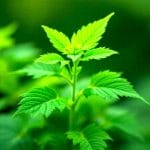Takeaways
- Banaba leaf contains compounds that may affect blood sugar
- Some users report digestive discomfort as a side effect
- Interactions with diabetes medications are possible
- Allergic reactions can occur in sensitive individuals
- Long-term effects of banaba leaf use remain unclear
- Consulting a healthcare provider before use is recommended
What Is Banaba Leaf?
Banaba leaf comes from the Lagerstroemia speciosa tree, which is native to Southeast Asia.[1] It has been used for centuries in traditional medicine practices in the region.[2]
The leaf is now a popular health supplement, with many people believing it can help with managing blood sugar levels and weight.[3] Its use has expanded beyond its original areas.
Banaba trees can grow to be quite tall and have large, oval-shaped leaves.[4] They also produce distinctive purple flowers, and it’s the leaves that contain compounds people use for health benefits.[5]
Active Compounds in Banaba Leaf
The leaf of the banaba plant contains several bioactive substances, and these are thought to be responsible for the reported effects. Understanding these compounds helps explain how banaba leaf may work.
Corosolic acid is one of the key compounds found in banaba leaf.[6] It has gained attention for its potential benefits, with research suggesting it may affect how the body processes glucose.
| Compound | Reported Function |
|---|---|
| Corosolic acid | May help lower blood sugar |
| Ellagitannins | Act as antioxidants |
| Gallotannins | May have anti-inflammatory effects |
| Valoneic acid | Potential antioxidant properties |
The different compounds within banaba leaf interact with the body in various ways, potentially affecting different biological processes and contributing to the effects people experience.
Potential Benefits of Banaba Leaf
Blood Sugar Management
Many people use banaba leaf as a natural way to help manage blood sugar levels. Some studies have indicated it might have this effect by influencing how cells use glucose.
Research suggests banaba leaf may improve the body’s sensitivity to insulin.[7] This means cells may respond better to insulin, potentially allowing them to absorb more glucose from the blood.
Weight Management
Some individuals have reported losing weight when using banaba leaf.[8] The exact reasons for this are not entirely understood, but it may be connected to how the leaf affects metabolism.
It’s been proposed that banaba leaf could potentially reduce fat creation and increase the breakdown of fats.[9] These actions may contribute to gradual weight loss.
Antioxidant Properties
Banaba leaf contains compounds with antioxidant properties.[10] These substances help protect the cells from damage by fighting harmful molecules known as free radicals.
Antioxidants play a role in supporting overall health in several ways. They may help to reduce inflammation and slow down the processes associated with aging, which could explain some reported general benefits.
Common Side Effects
Like any supplement, banaba leaf can potentially cause side effects in some people.[11] It’s helpful to be aware of these possible effects to make informed choices about using it.
Common side effects associated with banaba leaf can include:
- Stomach discomfort
- Headaches
- Dizziness
- Changes in bowel movements
These side effects are often linked to how the body processes banaba leaf, and they may be more likely with higher doses or in individuals who are more sensitive.
Digestive System Effects
Stomach Discomfort
Some users report having an upset stomach after taking banaba leaf, which may include feelings of nausea or bloating.[12] The precise reason for this is not always clear.
It’s possible that the compounds in the leaf can cause irritation to the stomach lining or affect the digestive processes. Starting with a low dose may help lessen this risk.
Changes in Bowel Movements
Banaba leaf might change how your digestive system functions, with some people experiencing changes in their bowel movements, which could mean more frequent or looser stools.[13]
To help minimize these digestive effects, consider taking banaba leaf with food. It’s also beneficial to stay hydrated. If problems continue, you might need to lower your dose or stop using it.
Impacts on Blood Sugar
Hypoglycemia Risk
Banaba leaf has the potential to lower blood sugar levels.[14] While this is often the reason people use it, blood sugar can drop too much. This could result in hypoglycemia, a condition of low blood sugar.[15]
Signs of hypoglycemia may include:
- Shakiness
- Sweating
- Confusion
- Rapid heartbeat
People with diabetes need to be particularly careful because they already have a greater chance of experiencing fluctuations in their blood sugar levels.
Interactions with Diabetes Medications
Banaba leaf could interact with medications used to treat diabetes.[16] It might amplify their blood sugar-lowering effects, which could lead to dangerously low blood sugar levels.
Common diabetes medications that might interact with banaba leaf include:
- Metformin
- Sulfonylureas
- Insulin
It’s essential to speak with a doctor before combining banaba leaf with these types of medications. They can help adjust dosages to avoid potential problems.
Allergic Reactions
Some people may have an allergic reaction to banaba leaf.[17] These reactions can range from mild to severe, and it’s important to be aware of the signs.
Symptoms of an allergic reaction may include:
- Skin rashes or hives
- Itching
- Swelling, especially of the face or throat
- Difficulty breathing
If you notice any of these symptoms, it’s important to stop using banaba leaf immediately. You should seek medical assistance if the reaction appears to be severe.
Cardiovascular Considerations
Blood Pressure Changes
Banaba leaf has the potential to affect blood pressure. Some studies indicate it may lower blood pressure, though this effect isn’t fully understood yet.[18]
Individuals with low blood pressure should exercise caution, as the leaf could potentially worsen their condition.[19] Those taking medications for blood pressure should also be careful.
Heart Rate Variability
There is limited information on how banaba leaf affects heart rate.[20] Some individuals have reported feeling their heart race, while others haven’t noticed any changes at all.
If you have a heart condition, it’s important to consult a doctor first. They can determine if banaba leaf is safe for you and advise you to stop using it if you notice any unusual heart symptoms.
Hormonal Influences
Effects on Insulin Sensitivity
Banaba leaf might alter how your body responds to insulin, which can be helpful for some, allowing cells to use glucose more effectively.[21]
However, this same effect could cause problems for others, and people with certain hormonal conditions need to be cautious as the leaf may interfere with their body’s natural processes.
Thyroid Function
There’s limited research on how banaba leaf affects the thyroid gland.[22] It is known that some herbs can influence thyroid hormone levels, but it’s unclear if banaba leaf has this effect.
People with thyroid disorders should talk with their doctor before using banaba leaf, as it might interfere with thyroid medications. It’s best to be careful until we have more information.
Liver Health Considerations
The liver is responsible for processing most substances we consume, including supplements like banaba leaf.[23] However, the exact effects of banaba leaf on liver function are not fully known.[24]
Certain herbs can place stress on the liver, particularly when taken in large quantities. While there isn’t clear evidence that banaba leaf does this, it’s wise to be aware of the possibility.
| Sign of Liver Stress | When to Seek Help |
|---|---|
| Yellowing skin or eyes | Immediately |
| Persistent fatigue | Within a few days |
| Abdominal pain | If severe or lasting |
| Dark urine | If it persists |
If you experience these signs, it’s important to stop taking banaba leaf and see a doctor to check your liver function.
Pregnancy and Breastfeeding Concerns
There isn’t sufficient data on the safety of banaba leaf during pregnancy or breastfeeding.[25] Due to this lack of information, it’s best to avoid using it during these times.
Herbs have the potential to affect fetal development and infant health, and even natural substances can pose risks. It’s important to consult a healthcare provider before using any supplement during these times.
Drug Interactions
Banaba leaf may interact with various medications, and these interactions can change how the drugs work, potentially increasing side effects or reducing effectiveness.[26]
Medications that might interact with banaba leaf include:
- Diabetes drugs
- Blood pressure medications
- Blood thinners
- Some antidepressants
It’s important to always inform your doctor about all the supplements you’re taking, as they can check for any potential interactions with your prescribed medications.
Dosage and Timing Considerations
Determining the right dosage of banaba leaf can be complex, as there is no standard dose that works for everyone. Factors like body weight and overall health are important.
Most research studies use daily doses of 16 to 48 mg of corosolic acid, which often translates to 200-400 mg of leaf extract.[27] Starting with a smaller dose is generally recommended.
Steps to safely introduce banaba leaf:
- Start with the lowest recommended dose
- Monitor for any side effects
- Gradually increase if needed and tolerated
- Don’t exceed manufacturer recommendations
- Consider cycling on and off the supplement
The timing of when you take banaba leaf may influence side effects. Some find taking it with food helpful, while others prefer taking it between meals. Experiment to see what works best for you.
Long-term Use Considerations
There is limited information on the long-term use of banaba leaf.[28] Most studies only last a few months, and the effects of using it for many years are still unknown.
Some herbs can have effects that build up over time, meaning the benefits or side effects might change over the long term, and it is possible that extended use could impact organ function.
If you’re using banaba leaf long-term, it’s a good idea to have regular check-ups. A doctor can monitor your health and identify any developing issues.
Quality and Purity Concerns
The quality of banaba leaf supplements can differ significantly.[29] Lower-quality products may result in more side effects and may also be less effective.[30]
Contaminants in supplements can cause unexpected problems. These may include:
- Heavy metals
- Pesticides
- Microorganisms
Tips for choosing good banaba leaf supplements:
- Look for third-party testing
- Choose reputable brands
- Check for quality certifications
- Read customer reviews critically
- Avoid unusually cheap products
Generally, higher quality supplements pose fewer risks, and it’s often worthwhile to invest in a good product.
When to Stop Taking Banaba Leaf
Certain signs suggest you should stop using banaba leaf. These include:
- Persistent digestive issues
- Unexpected changes in blood sugar
- Signs of an allergic reaction
- New or worsening health problems
If you experience any of these, stop taking the supplement immediately, and consult a healthcare provider before starting use again.
To stop using it safely, gradually reduce your dose.[31] This approach can help to avoid any rebound effects. If you have been using it for blood sugar control, you should monitor your levels closely.
Monitoring Your Health While Using Banaba Leaf
Paying attention to your body is important when taking any supplement, as it allows you to identify potential problems early.
Steps to effectively monitor your response to banaba leaf:
- Keep a symptom journal
- Check blood sugar regularly if relevant
- Note any changes in weight or appetite
- Pay attention to energy levels and mood
- Schedule regular check-ups with your doctor
These actions will help you and your healthcare provider assess the supplement’s effects, and they can help guide decisions about continuing use.
FAQ: People Also Ask
What is banaba leaf used for?
How long does it take for banaba leaf to work?
Can banaba leaf cause liver damage?
Is banaba leaf safe for diabetics?
Does banaba leaf interact with metformin?
Can banaba leaf help with weight loss?
Are there any contraindications for banaba leaf?
Lagerstroemia speciosa is indeed native to Southeast Asia, including countries like the Philippines, India, and Malaysia.
Source: “Management of Diabetes and Its Complications with Banaba (Lagerstroemia speciosa L.) and Corosolic Acid” https://pubmed.ncbi.nlm.nih.gov/23082086/
Traditional medicine systems in Southeast Asia have long used banaba leaves for various health-related purposes.
Source: “A review of the efficacy and safety of banaba (Lagerstroemia speciosa L.) and corosolic acid” https://pubmed.ncbi.nlm.nih.gov/22095937/
Banaba leaf supplements are widely available and marketed for their potential to help with blood sugar regulation and weight loss.
Source: “Management of Diabetes and Its Complications with Banaba (Lagerstroemia speciosa L.) and Corosolic Acid” https://pubmed.ncbi.nlm.nih.gov/23082086/
Lagerstroemia speciosa trees are known for their size and the distinctive shape of their leaves.
Source: “Management of Diabetes and Its Complications with Banaba (Lagerstroemia speciosa L.) and Corosolic Acid” https://pubmed.ncbi.nlm.nih.gov/23082086/
The purple flowers are a characteristic feature of the tree, but it’s the leaves that are harvested for their bioactive compounds.
Source: “A review of the efficacy and safety of banaba (Lagerstroemia speciosa L.) and corosolic acid” https://pubmed.ncbi.nlm.nih.gov/22095937/
Corosolic acid is one of the most studied components of banaba leaves and is believed to contribute to some of the purported health benefits.
Source: “Management of Diabetes and Its Complications with Banaba (Lagerstroemia speciosa L.) and Corosolic Acid” https://pubmed.ncbi.nlm.nih.gov/23082086/
Research suggests that banaba leaf may improve how cells respond to insulin, potentially aiding glucose absorption.
Source: “Management of Diabetes and Its Complications with Banaba (Lagerstroemia speciosa L.) and Corosolic Acid” https://pubmed.ncbi.nlm.nih.gov/23082086/
While some people report weight loss when using banaba leaf, the exact mechanisms and effectiveness are still under investigation.
Source: “A review of the efficacy and safety of banaba (Lagerstroemia speciosa L.) and corosolic acid” https://pubmed.ncbi.nlm.nih.gov/22095937/
Preliminary studies indicate potential effects of banaba leaf on fat metabolism, but further investigation is required to confirm these findings.
Source: “A review of the efficacy and safety of banaba (Lagerstroemia speciosa L.) and corosolic acid” https://pubmed.ncbi.nlm.nih.gov/22095937/
The leaves of the banaba plant contain compounds that can neutralize harmful free radicals, acting as antioxidants.
Source: “Management of Diabetes and Its Complications with Banaba (Lagerstroemia speciosa L.) and Corosolic Acid” https://pubmed.ncbi.nlm.nih.gov/23082086/
It is possible for individuals to experience side effects when taking banaba leaf supplements, particularly with higher doses or if they are sensitive to it.
Source: “A review of the efficacy and safety of banaba (Lagerstroemia speciosa L.) and corosolic acid” https://pubmed.ncbi.nlm.nih.gov/22095937/
Digestive side effects are possible when using banaba leaf supplements, though they vary in occurrence and severity between individuals.
Source: “A review of the efficacy and safety of banaba (Lagerstroemia speciosa L.) and corosolic acid” https://pubmed.ncbi.nlm.nih.gov/22095937/
Changes in bowel movements are a possible side effect of using banaba leaf, which may include increased frequency or looser consistency of stool.
Source: “A review of the efficacy and safety of banaba (Lagerstroemia speciosa L.) and corosolic acid” https://pubmed.ncbi.nlm.nih.gov/22095937/
Studies suggest that banaba leaf may help in lowering blood sugar levels. However, effects can vary.
Source: “Management of Diabetes and Its Complications with Banaba (Lagerstroemia speciosa L.) and Corosolic Acid” https://pubmed.ncbi.nlm.nih.gov/23082086/
Since Banaba leaf can lower blood sugar levels, if it is taken in excess, or in combination with other blood sugar lowering agents, low blood sugar may result.
Source: “A review of the efficacy and safety of banaba (Lagerstroemia speciosa L.) and corosolic acid” https://pubmed.ncbi.nlm.nih.gov/22095937/
Banaba leaf might amplify the effects of diabetes medications, potentially causing excessively low blood sugar levels.
Source: “A review of the efficacy and safety of banaba (Lagerstroemia speciosa L.) and corosolic acid” https://pubmed.ncbi.nlm.nih.gov/22095937/
Like any substance, it is possible for some individuals to develop an allergic reaction to banaba leaf or its components.
Source: “A review of the efficacy and safety of banaba (Lagerstroemia speciosa L.) and corosolic acid” https://pubmed.ncbi.nlm.nih.gov/22095937/
There is some indication that banaba leaf may lower blood pressure, but more studies are needed to confirm this and understand the mechanism of action.
Source: “A review of the efficacy and safety of banaba (Lagerstroemia speciosa L.) and corosolic acid” https://pubmed.ncbi.nlm.nih.gov/22095937/
The blood pressure lowering effects of Banaba may exacerbate low blood pressure, and therefore people with this condition should be cautious.
Source: “A review of the efficacy and safety of banaba (Lagerstroemia speciosa L.) and corosolic acid” https://pubmed.ncbi.nlm.nih.gov/22095937/
The research on banaba leaf’s effects on heart rate is limited, and individual experiences may vary.
Source: “A review of the efficacy and safety of banaba (Lagerstroemia speciosa L.) and corosolic acid” https://pubmed.ncbi.nlm.nih.gov/22095937/
Banaba leaf might improve insulin sensitivity, which can help the cells use glucose more efficiently.
Source: “Management of Diabetes and Its Complications with Banaba (Lagerstroemia speciosa L.) and Corosolic Acid” https://pubmed.ncbi.nlm.nih.gov/23082086/
There is not sufficient research to know if and how banaba leaf may impact thyroid function.
Source: “A review of the efficacy and safety of banaba (Lagerstroemia speciosa L.) and corosolic acid” https://pubmed.ncbi.nlm.nih.gov/22095937/
The liver is crucial for metabolizing and processing various substances, including dietary supplements.
While the liver processes banaba leaf, its specific effects on liver function are not yet fully determined by research.
Source: “A review of the efficacy and safety of banaba (Lagerstroemia speciosa L.) and corosolic acid” https://pubmed.ncbi.nlm.nih.gov/22095937/
Due to a lack of sufficient research, the safety of banaba leaf supplementation during pregnancy and breastfeeding is not confirmed.
Source: “A review of the efficacy and safety of banaba (Lagerstroemia speciosa L.) and corosolic acid” https://pubmed.ncbi.nlm.nih.gov/22095937/
Banaba leaf could interact with various medications potentially leading to altered drug function, increased side effects or reduced effectiveness.
Source: “A review of the efficacy and safety of banaba (Lagerstroemia speciosa L.) and corosolic acid” https://pubmed.ncbi.nlm.nih.gov/22095937/
Research often employs doses within this range, but the optimal dose can vary for individuals.
Source: “Management of Diabetes and Its Complications with Banaba (Lagerstroemia speciosa L.) and Corosolic Acid” https://pubmed.ncbi.nlm.nih.gov/23082086/
Most studies are of shorter duration, so the effects of prolonged banaba leaf usage are not well documented.
Source: “A review of the efficacy and safety of banaba (Lagerstroemia speciosa L.) and corosolic acid” https://pubmed.ncbi.nlm.nih.gov/22095937/
Supplement quality can differ significantly due to variations in manufacturing and quality control processes.
Lower quality supplements may contain contaminants or less of the desired active ingredients, potentially leading to increased side effects and/or reduced effectiveness.
A gradual reduction can help avoid any adverse rebound effects from abruptly stopping use of Banaba leaf.
These are the most common reasons people use banaba leaf supplements, but scientific evidence for these claims vary.
Source: “Management of Diabetes and Its Complications with Banaba (Lagerstroemia speciosa L.) and Corosolic Acid” https://pubmed.ncbi.nlm.nih.gov/23082086/
The speed at which changes may be observed varies, with some noting changes in blood sugar in the weeks following supplementation, but this varies from person to person.
Source: “Management of Diabetes and Its Complications with Banaba (Lagerstroemia speciosa L.) and Corosolic Acid” https://pubmed.ncbi.nlm.nih.gov/23082086/
While more research is needed, to date, there is no direct evidence to indicate that banaba leaf causes liver damage.
Source: “A review of the efficacy and safety of banaba (Lagerstroemia speciosa L.) and corosolic acid” https://pubmed.ncbi.nlm.nih.gov/22095937/
While it may have beneficial effects on blood sugar, those with diabetes need to be cautious due to potential interactions with medications and risks of low blood sugar.
Source: “A review of the efficacy and safety of banaba (Lagerstroemia speciosa L.) and corosolic acid” https://pubmed.ncbi.nlm.nih.gov/22095937/
The combination of banaba leaf and metformin increases the risk of hypoglycemia due to their combined blood sugar lowering effect.
Source: “A review of the efficacy and safety of banaba (Lagerstroemia speciosa L.) and corosolic acid” https://pubmed.ncbi.nlm.nih.gov/22095937/
While initial research is promising, further and more conclusive studies are needed to fully confirm banaba’s effect on weight.
Source: “A review of the efficacy and safety of banaba (Lagerstroemia speciosa L.) and corosolic acid” https://pubmed.ncbi.nlm.nih.gov/22095937/
These populations should exercise caution or avoid banaba leaf due to possible risks.
Source: “A review of the efficacy and safety of banaba (Lagerstroemia speciosa L.) and corosolic acid” https://pubmed.ncbi.nlm.nih.gov/22095937/
Some find banaba leaf works well for them, but responses vary, and other supplements may be more effective for different individuals.



